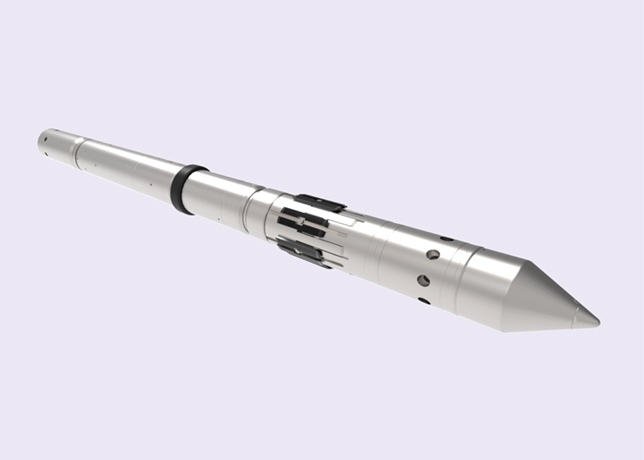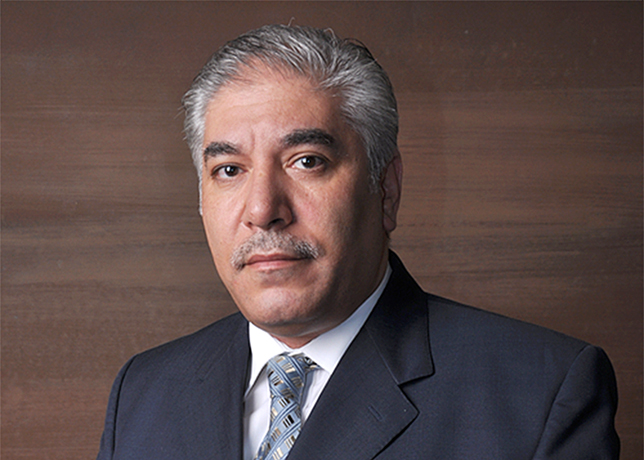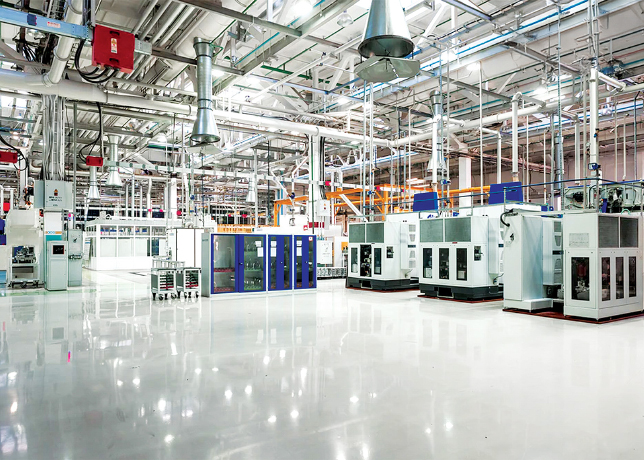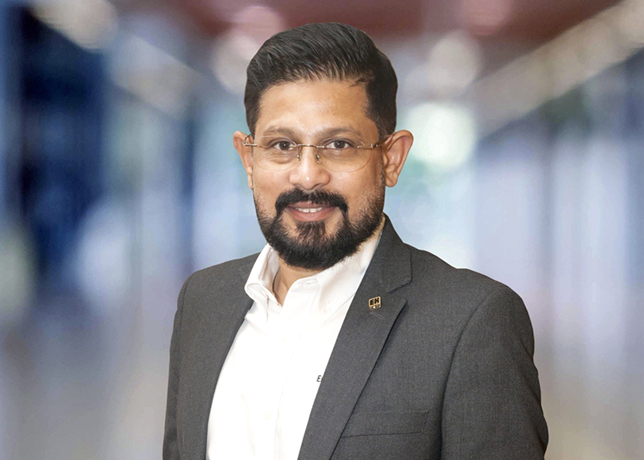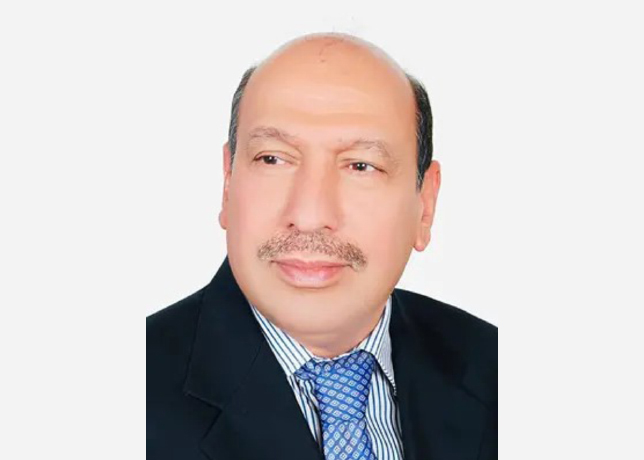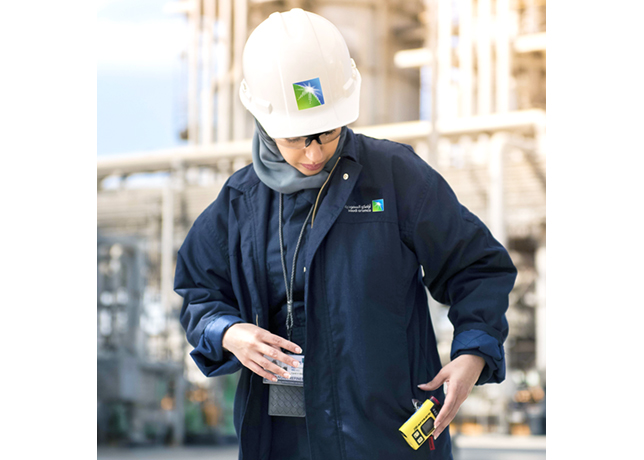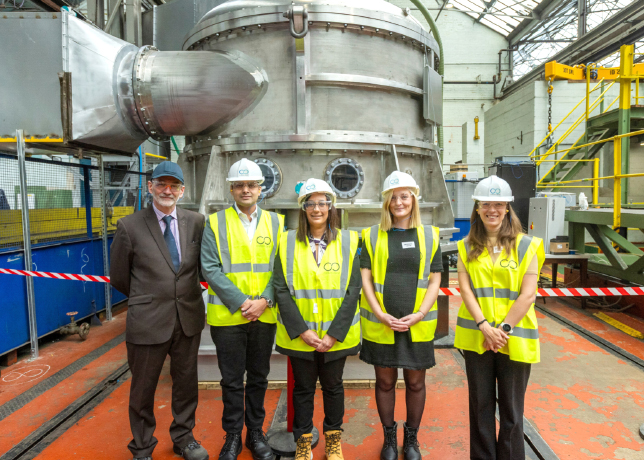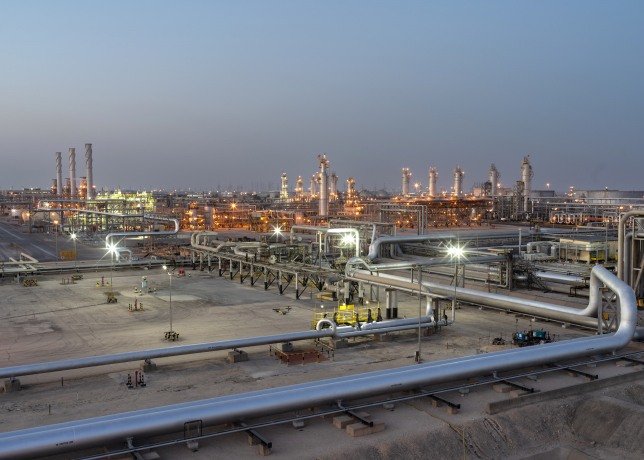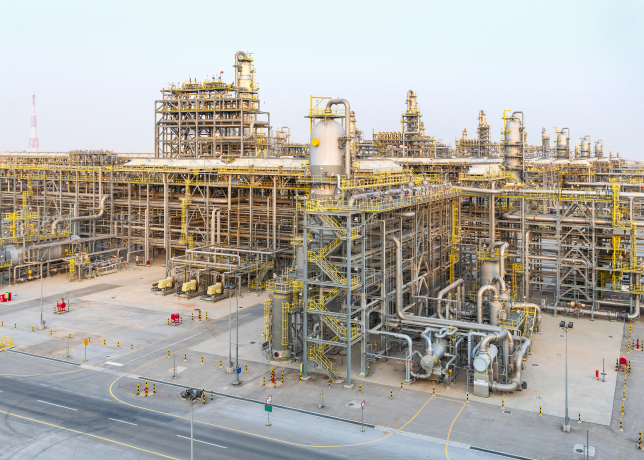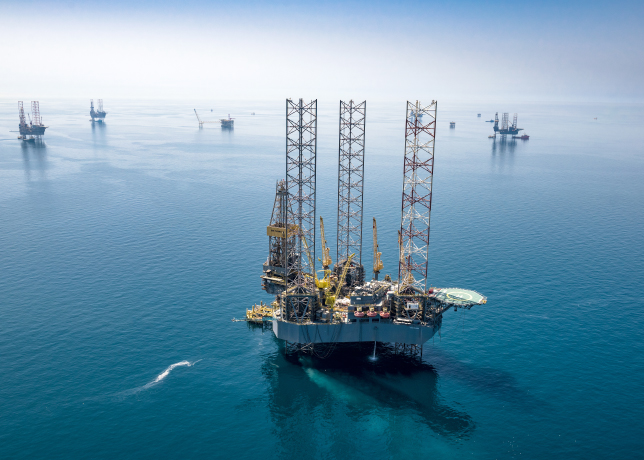
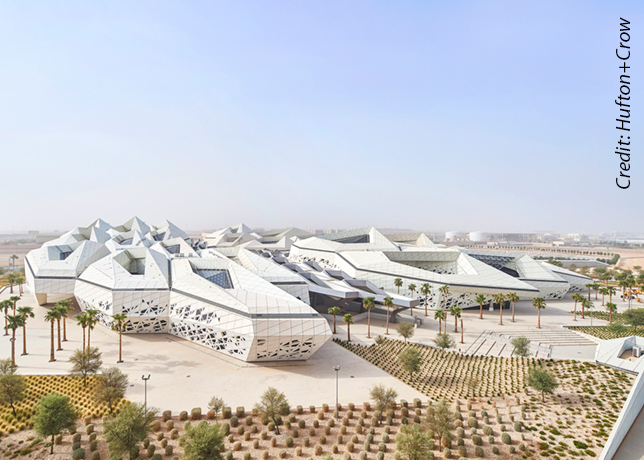 The Kapsarc building with its windcatcher roof
The Kapsarc building with its windcatcher roof
The energy think tank is transforming global energy discussions through research, advisory and innovative tools that reflect its growing role in shaping sustainable energy and climate futures
The King Abdullah Petroleum Studies and Research Center (KAPSARC) has emerged globally as a leading and influential energy think tank, shaping debates on energy transition, climate policy, and sustainable growth.
Based in Riyadh, it is the first such institute in the Kingdom dedicated to independent, evidence-based research and advisory.
Over the past decade, KAPSARC has not only produced world-class studies but also acted as a convener, bringing together policymakers, industry leaders, and researchers to tackle the complex challenges of global energy transformation.
This commitment to fostering dialogue and driving innovative solutions has solidified its position as a trusted global energy policy advisor.
Building on this legacy, KAPSARC introduced its first brand refresh since 2016 in July 2025, unveiling a modernised logo and colour scheme that reflect its expanded role.
Emerald green was chosen as the primary colour, symbolising wisdom, foresight, sustainability, and prosperity, while also resonating with Saudi Arabia’s cultural identity.
Complementing it is graphite grey, inspired by the Greek root graphein ("to write"), a nod to clarity in communication and graphite’s role in energy storage technologies.
The new identity conveys KAPSARC’s maturity as an institution that bridges tradition with innovation, reinforcing its influence in shaping global energy policy.
ORIGINS & EVOLUTION
KAPSARC was first announced in 2007 by King Abdullah bin Abdulaziz Al Saud and formally established by royal decree in 2010.
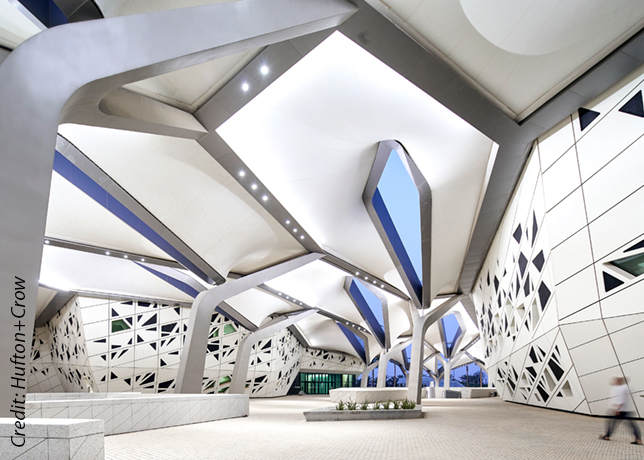 |
The central courtyard at Kapsarc |
Construction of the centre began in 2013, with operations commencing in 2016. Designed to act as a hub for collaboration, its mandate extends beyond conventional research institutions.
The founding of KAPSARC was driven by a vision to contribute solutions for humanity through energy knowledge and policy expertise.
Its creation stemmed from Saudi Arabia’s growing recognition of the need for a world-class, independent research centre to explore global energy and sustainability issues.
From the outset, the goal was not merely to create another institute but to foster a collaborative platform where international experts could work together on challenges transcending national boundaries.
This emphasis on inclusivity, foresight, and applied research set KAPSARC apart and has guided its evolution into a globally respected advisory think tank.
KAPSARC has since grown into a multidisciplinary hub of more than 150 experts from over 20 nationalities, headquartered in Riyadh.
The centre develops economic frameworks to align energy policy objectives with outcomes, improving welfare locally and globally.
Since its inauguration by King Salman in 2016, it has been a focal point of research and analytics in Saudi Arabia’s energy landscape.
In 2023, it won two prestigious awards at the Opec International Seminar: the ‘Best Energy Research Institute Award’ and the ‘Best Energy Research Paper Award’, recognising its role in shaping discourse on oil market stability.
It has also achieved observer status at the United Nations Environment Programme (UNEP), granting it a platform in international climate negotiations such as COP summits.
DESIGN INNOVATION & ENVIRONMENTAL RESPONSIVENESS
Integral to KAPSARC’s identity is its iconic campus, designed by Zaha Hadid Architects. The centre’s striking honeycomb-inspired design uses interlocking hexagonal cells to create shaded courtyards, optimise airflow, and mitigate the harsh desert climate.
Built with light-coloured, glass-reinforced concrete and advanced glazing, the structure balances aesthetic innovation with sustainability by reducing heat gain and minimising energy demand.
The campus was awarded LEED Platinum certification, underscoring its role as a showcase of environmental design tailored to its regional context.
This architectural achievement is not only symbolic of Saudi Arabia’s ambition to host world-class institutions but also practical in reflecting KAPSARC’s sustainability-driven mission.
KEY AREAS OF IMPACT
KAPSARC generates impact through five central approaches: Strategic advisory, applied research and modelling, policy influence, collaboration and partnerships, and capacity building.
These mechanisms ensure that its work is not limited to theory but extends into shaping real-world outcomes.
Its contributions span sustainability, climate action, energy transition, and economic welfare.
KAPSARC has been instrumental in supporting Saudi Arabia’s Vision 2030 agenda, particularly in diversifying the energy mix, integrating renewables, and crafting policies that balance economic growth with environmental stewardship.
The think tank’s work has also helped strengthen regional cooperation within the Gulf and international collaboration through platforms such as the G20 and COP summits.
KAPSARC focuses on three major domains: The global hydrocarbon market, the Saudi energy sector, and climate and sustainability.
Its six research programmes address oil and gas, transportation and infrastructure, utilities and renewables, climate and sustainability, energy macro- and micro-economics, and solutions productisation.
Through these programmes, KAPSARC provides tailored policy advice, conducts advanced modelling, and incubates talent that strengthens Saudi Arabia’s energy leadership.
RESEARCH, POLICY & MODELLING TOOLS
KAPSARC’s applied research outputs and policy tools are among its most influential contributions.
One notable innovation is the CO2 REMOVE tool, which enables policymakers to assess and model the effectiveness of different carbon removal strategies, offering science-based support for climate action plans.
In addition, the KAPSARC Energy Model (KEM) provides scenario-based analysis to evaluate future energy pathways, while the KAPSARC Toolkit for Behavioural Analysis (KTAB) helps understand stakeholder dynamics in policy decision-making.
Beyond tools, KAPSARC is known for initiatives that address energy economics and climate challenges.
These include evaluations of public investment projects, analysis of Saudi Arabia’s diversification pathways, studies of oil and gas market futures, electricity sector transitions, and regional energy market integration.
By developing such initiatives, KAPSARC strengthens Saudi Arabia’s position in global energy governance.
THE CIRCULAR CARBON ECONOMY (CCE)
A hallmark of KAPSARC’s international impact is its contribution to the Circular Carbon Economy (CCE).
Under Saudi Arabia’s G20 Presidency in 2020, KAPSARC co-developed the CCE Guide alongside international organisations including the IEA, IRENA, NEA, GCCSI, and OECD.
The guide’s "4Rs" framework—Reduce, Reuse, Recycle, Remove—offers a comprehensive blueprint for managing carbon emissions across energy systems.
The centre has also developed the CCE Visualiser, an interactive tool for exploring energy and carbon pathways to 2050.
In 2021, KAPSARC introduced the CCE Index, a pioneering benchmarking tool to measure how 64 countries are progressing toward circular carbon systems.
Presented at COP26 and later expanded at COP27, the Index covers 90 per cent of global GDP and carbon emissions, providing policymakers with a robust framework to track and accelerate decarbonisation.
DATA & OPEN KNOWLEDGE
Since 2016, KAPSARC has operated an open data portal that now hosts over 1,500 datasets covering energy, economy, and environment from more than 230 sources and over 30 countries.
With more than 10 million downloads to date, this portal has become a vital global resource for policymakers, researchers, and academics.
The datasets, classified into 16 thematic areas, enable deeper insights into energy-intensive sectors, climate risks, and economic vulnerabilities.
CAPACITY BUILDING & LEADERSHIP
KAPSARC is equally committed to building human capital. Its KAPSARC Academy, established under the patronage of Prince Abdulaziz bin Salman, the Kingdom’s Minister of Energy, provides executive education programmes in collaboration with leading institutions such as the International Institute for Management Development and Luiss Business School.
The Academy equips professionals with public policy and leadership skills essential for advancing Saudi Vision 2030.
Leadership at KAPSARC has also been pivotal in shaping its trajectory. Since 2021, Fahad Alajlan has served as President, bringing extensive experience from the Ministry of Energy, the Ministry of Economy and Planning, and Saudi Aramco.
His stewardship has helped align KAPSARC’s advisory role with Saudi Arabia’s long-term sustainability goals while reinforcing its global policy influence.
Looking ahead, KAPSARC continues to expand its influence at the intersection of energy, economics, and climate policy.
By combining cutting-edge research, innovative tools, and an inclusive, collaborative approach, the centre is not only shaping Saudi Arabia’s energy future but also setting global benchmarks for sustainability, policy innovation, and knowledge sharing.
Its ongoing commitment to nurturing talent, engaging with international partners, and translating complex data into actionable insights ensures that KAPSARC will remain a guiding force in navigating the world’s energy transition for decades to come.







































































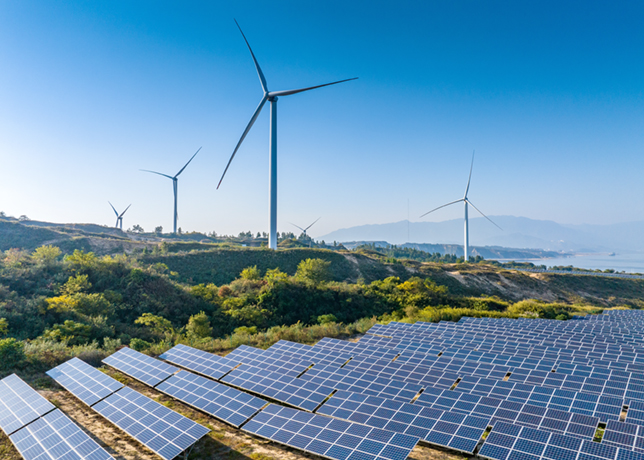




-is-one-of-the-world.jpg)
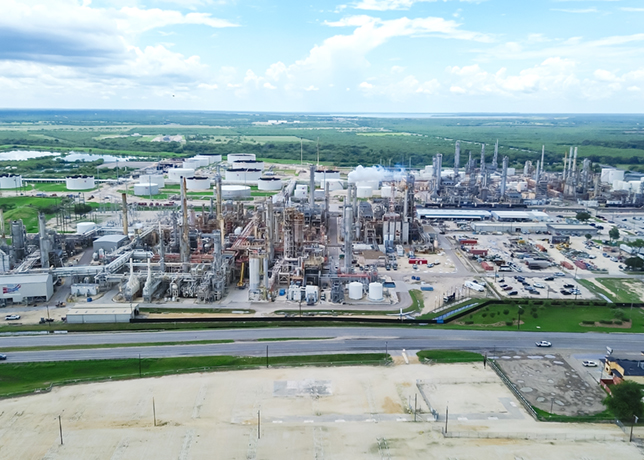
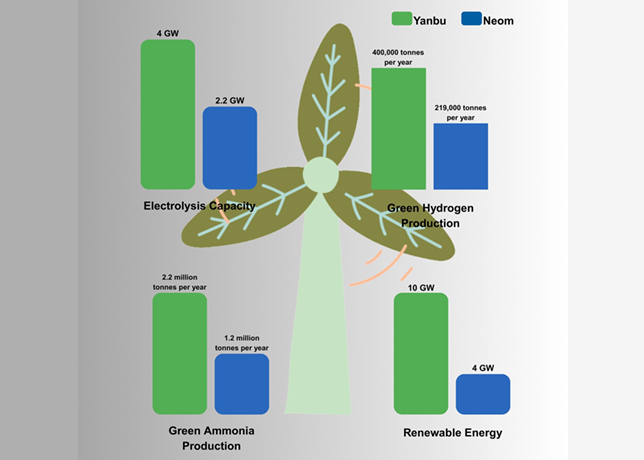

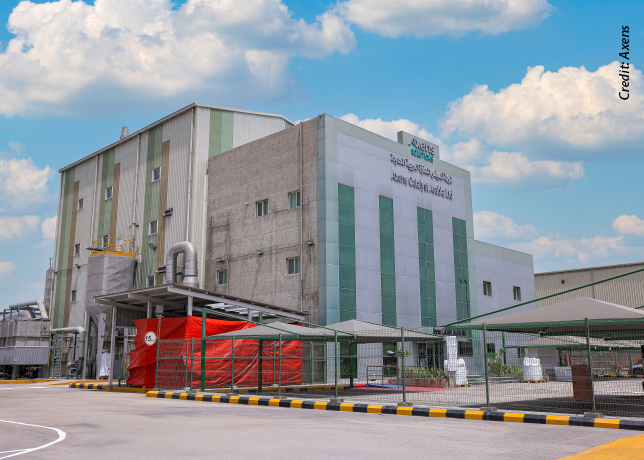
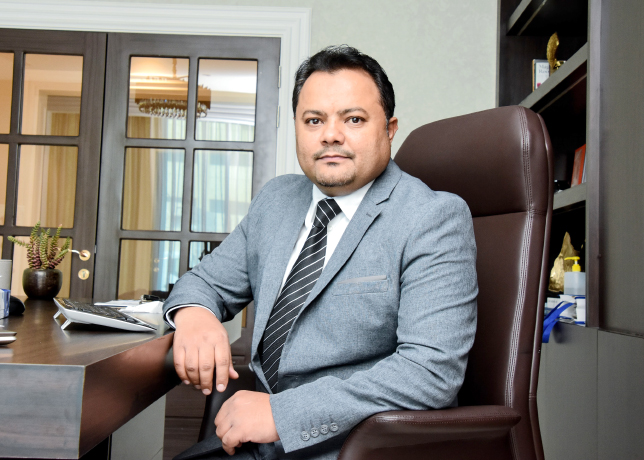
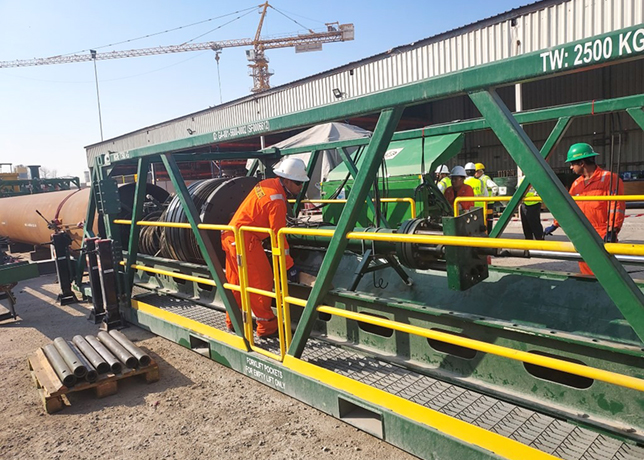
-(4)-caption-in-text.jpg)
